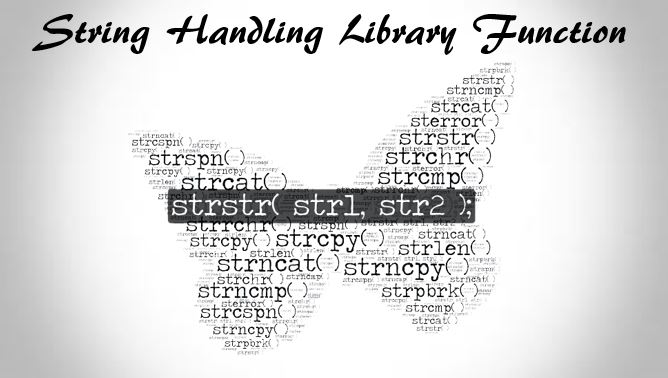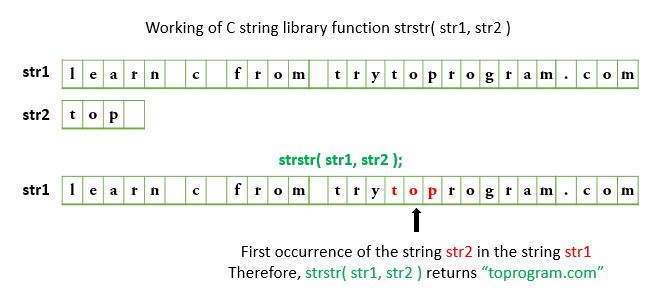In this article, you will learn about C string library function strstr( ) with step by step explanation and example.

strstr( ) is the built in standard string manipulation function that is defined under string handling library string.h.
Therefore it is necessary to include string header file to use standard C string library function strstr( ).
#include<string.h>Function prototype of C string library function strstr( )
char *strstr( const char *str1, const char *str2 );where,
str1 = string that needs to be scanned
str2 = small string which characters needs to be located in str1
This function identifies all the characters of small string str2 in the large string str1.
If all the characters from string str2 are located, a pointer to the string in str1 is returned, otherwise, a NULL pointer is returned.
Use: This function is useful when you want to locate the first occurrence of a small string in a huge text.
How C string library function strstr( ) works?

Example: C program to demonstrate the use of string library function strstr( )
/*Use of C string library function strstr*/
#include<stdio.h>
#include<string.h>
int main()
{
//initializing character pointer
const char *str1 = "Learn C from trytoprogram.com";
const char *str2 = "top";
//displaying both string
printf("str1 = %s\n\n", str1);
printf("str2 = %s\n\n", str2);
printf("Remaining part of str1 after the first"
"occurence of str2 = %s\n", strstr(str1, str2));
return 0;
}//end main
Output

Explanation
In this program, we have searched "top" in the bigger string "Learn C from trytoprogram.com".
strstr( ) returns the pointer to the top in str1 and hence the output as shown in the figure.

